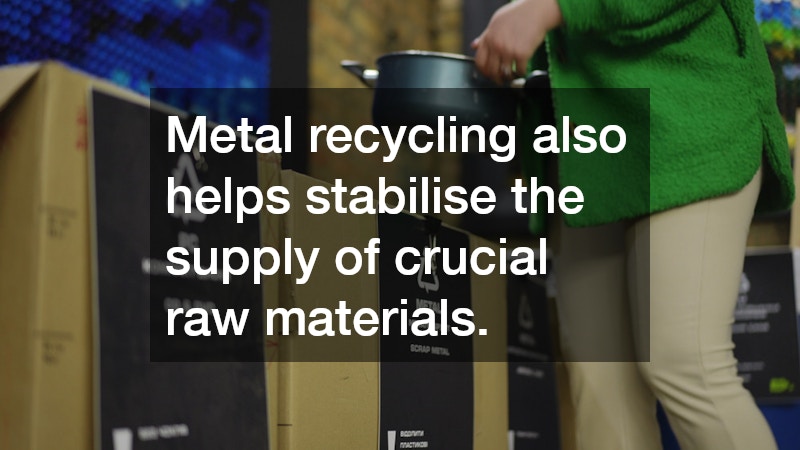Metal recycling is a simple yet powerful way to contribute to environmental protection, resource conservation and economic growth. It’s a practice that Australians are increasingly embracing as awareness grows around sustainability and the finite nature of natural resources.
While many people associate recycling with everyday items like paper or plastic, the recycling of metals offers substantial long-term benefits for communities and the planet alike.
Environmental Preservation
One of the most compelling benefits of metal recycling is its positive impact on the environment. Mining raw materials like iron ore, bauxite and copper not only requires vast amounts of energy but also causes significant disruption to the natural landscape. This includes habitat destruction, soil erosion and water pollution. By recycling existing metal, we reduce the demand for new mining operations and help preserve Australia’s diverse ecosystems.
Recycling metals also helps lower greenhouse gas emissions. Producing new metal from raw ore generates considerably more carbon dioxide than processing scrap. For example, recycling aluminium uses up to 95 per cent less energy compared to producing it from raw materials. This reduction in energy use translates into fewer emissions and a smaller carbon footprint for industries and households alike. In an age where climate change is an urgent global issue, every bit counts.
Economic Advantages
Metal recycling contributes significantly to the Australian economy. The recycling industry supports thousands of jobs across collection, sorting, processing and transportation. These roles not only provide employment but also promote skill development and long-term career paths in sustainable industries.
Moreover, recycled metals are often cheaper to process and manufacture than new materials. This cost efficiency allows Australian manufacturers to stay competitive both locally and internationally. Businesses that use recycled metal can pass savings on to consumers or reinvest profits into innovation and growth.
The trade of scrap metal also plays an important role in Australia’s economy. Recycled metal is exported globally, generating revenue and supporting trade partnerships. As global demand for sustainable products increases, Australia’s ability to supply high-quality recycled materials gives it a valuable advantage in international markets.
Metal recycling also helps stabilise the supply of crucial raw materials. Global shortages and price volatility in metal markets can impact industries such as construction, automotive and electronics. By maintaining a robust supply of recycled materials, Australia can become more resilient to these fluctuations and better meet domestic production needs.
Conservation of Natural Resources
Natural resources are finite, and the rate at which we consume them is unsustainable. Mining and refining metal ores not only deplete the Earth’s reserves but also place a heavy burden on energy and water systems. Through metal recycling, we can extend the life of these resources and reduce our dependence on new extraction.
Unlike some materials that degrade in quality each time they are recycled, metals can be recycled indefinitely without losing their structural integrity. This makes metal a highly sustainable resource. Aluminium, steel, copper and other commonly recycled metals retain their strength and versatility even after multiple uses.
This quality ensures that recycled metal can be used in a wide range of applications — from building infrastructure to creating consumer goods — without compromising performance. For example, recycled steel can be used to manufacture vehicles, appliances and construction beams just as effectively as new steel.
Furthermore, metal recycling reduces the need for water-intensive processes involved in ore refining. Conserving water is particularly important in Australia, where drought and water scarcity are ongoing challenges. By reducing reliance on mining and refining, we lessen our environmental impact and help secure water resources for future generations.
A Sustainable Path Forward
The benefits of metal recycling extend far beyond the immediate advantages of waste reduction. It represents a shift toward a more circular economy where materials are reused, resources are conserved and environmental damage is minimised. As technology continues to advance, recycling systems will become even more efficient and accessible, making it easier for households and businesses to participate.
By understanding the environmental, economic and resource-saving benefits of metal recycling, Australians can make more informed choices about consumption and disposal. Each piece of scrap metal collected and recycled is a step toward a cleaner, more sustainable future.
Whether you’re a business owner managing industrial waste or a resident clearing out your garage, choosing to recycle your metals is a responsible and impactful decision. With better infrastructure, government support and public awareness, metal recycling can become a central part of Australia’s sustainability efforts.



